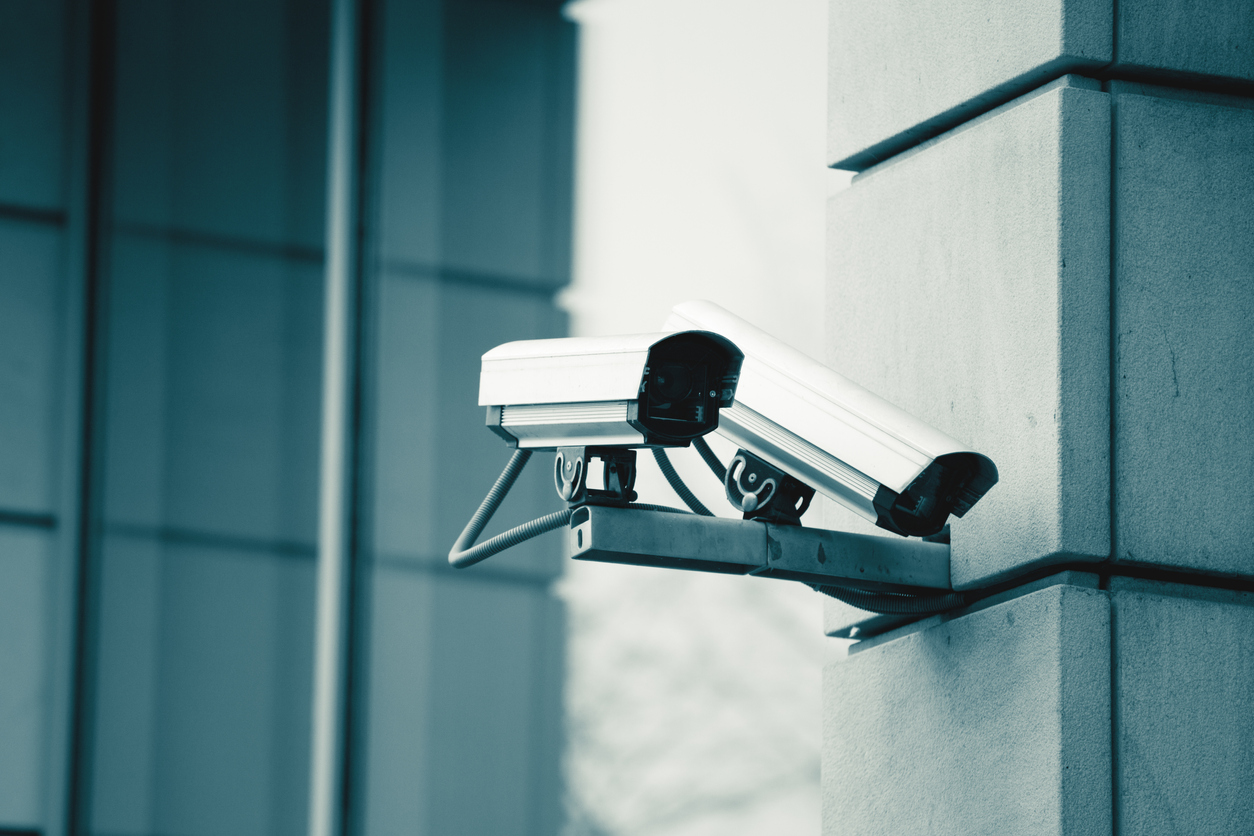- Home
- Commercial
- Can Security Cameras Record Sound?

Can Security Cameras Record Sound?
Security cameras have become an integral part of modern security systems, providing surveillance and monitoring capabilities to homes, businesses, and public spaces. While video recording is the primary function of security cameras, many people wonder whether these devices can also record sound. In this article, we’ll explore the capabilities of security cameras in capturing audio, the considerations involved, and the implications for privacy and security.
Understanding Audio Recording in Security Cameras
Audio recording adds another dimension to surveillance systems, offering valuable information alongside video footage. It allows users to not only see what is happening but also hear conversations and other sounds within the camera’s range. This can be particularly useful in certain situations, such as detecting intruders or monitoring conversations.
Importance of Audio Recording
The ability to capture sound can provide additional context to recorded events, helping to identify individuals, understand their intentions, and assess the severity of a situation. It can also serve as a deterrent to potential criminals who may be aware that their actions are being both seen and heard.
Legal Considerations
However, the use of audio recording raises legal considerations, as it may infringe upon individuals’ privacy rights. Laws governing audio recording vary by jurisdiction, and it’s essential to understand the regulations in your area before implementing audio recording features in security cameras.
Types of Security Cameras
When it comes to audio recording, not all security cameras are created equal. Some cameras come equipped with built-in microphones, allowing them to capture sound directly, while others may require external microphones for audio recording.
Audio-Enabled Cameras
Audio-enabled cameras feature integrated microphones that can pick up sound within their vicinity. These cameras are designed to capture both video and audio simultaneously, providing users with comprehensive surveillance capabilities.
Non-Audio Cameras
On the other hand, non-audio cameras do not have built-in microphones and rely solely on video recording. While these cameras are still effective for visual surveillance, they lack the ability to capture sound, which may limit their utility in certain situations.
How Do Security Cameras Record Sound?
The process of sound recording in security cameras typically involves the use of microphones, either built-in or external, that capture audio signals and transmit them to the recording device.
Built-in Microphones
Many modern security cameras come equipped with built-in microphones that are strategically placed to capture sound effectively. These microphones are usually of high quality and can pick up audio within a certain range of the camera.
External Microphones
In cases where built-in microphones are not sufficient or practical, external microphones can be used to capture sound. These microphones can be attached to the camera or placed nearby to pick up audio from specific areas.
Benefits of Sound Recording
The ability to record sound offers several benefits in security surveillance applications, including:
- Enhanced Security Monitoring: Audio recording provides additional information that can aid in identifying threats and monitoring suspicious activities.
- Gathering Evidence: Audio evidence can be invaluable in legal proceedings, helping to corroborate visual evidence and provide context to recorded events.
Privacy Concerns and Ethical Considerations
While audio recording can enhance security monitoring, it also raises concerns about privacy and ethical use. Recording conversations without consent may violate individuals’ privacy rights and lead to legal repercussions.
Ways to Enable or Disable Audio Recording
Most security cameras that are equipped with audio recording capabilities allow users to enable or disable this feature through software settings or hardware adjustments. It’s important to understand how to control audio recording to ensure compliance with legal regulations and respect privacy concerns.
Limitations of Audio Recording
Despite its benefits, audio recording in security cameras has some limitations, including:
- Environmental Factors: Background noise and other environmental factors can affect the quality of recorded audio.
- Distance Limitations: The range of built-in microphones may be limited, making it difficult to capture sound from distant objects or individuals.
Legal Regulations Regarding Audio Recording
The legality of audio recording in security cameras is governed by various federal and state laws, including wiretapping statutes and privacy regulations. It’s crucial to familiarize yourself with the relevant laws in your jurisdiction to avoid legal pitfalls.
Tips for Using Audio Recording in Security Cameras Responsibly
To use audio recording features responsibly, consider the following tips:
- Obtain Consent: If recording audio in areas where individuals have a reasonable expectation of privacy, such as homes or private offices, obtain consent from those being recorded.
- Be Transparent: Clearly indicate the presence of audio recording capabilities through signage or notifications to inform individuals of potential surveillance.
- Regularly Review Settings: Periodically review and adjust camera settings to ensure compliance with legal regulations and address any privacy concerns.
Conclusion
In conclusion, security cameras can indeed record sound, providing valuable audio evidence alongside video footage. However, the use of audio recording features raises legal and ethical considerations that must be carefully navigated. By understanding the capabilities and limitations of audio recording in security cameras and adhering to legal regulations and best practices, users can leverage this technology effectively while respecting individuals’ privacy rights.
FAQs
1. Can security cameras record sound without consent?
Recording conversations without consent may violate privacy laws in many jurisdictions. It’s essential to obtain consent or adhere to legal exemptions before recording audio in security cameras.
2. Are there any limitations to the range of built-in microphones in security cameras?
Yes, built-in microphones in security cameras typically have a limited range and may struggle to capture sound from distant objects or individuals effectively.
3. How can I disable audio recording in my security camera?
Most security cameras allow users to disable audio recording through software settings or hardware adjustments. Refer to your camera’s user manual for instructions on how to disable this feature.
4. What are the benefits of audio recording in security cameras?
Audio recording enhances security monitoring by providing additional context to recorded events and can serve as valuable evidence in legal proceedings.

